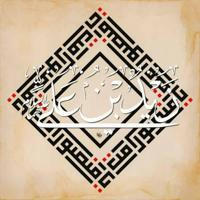Ibn al-Jawzī narrated in his book Dhamm al-Hawa:
When Ardashir grew powerful and the kings submitted to him, he besieged the king of the Syrianites, who was fortified in his city. Ardashir couldn’t conquer it until one day, the king’s daughter climbed the fortress, saw Ardashir, and fell in love with him. She descended, took an arrow, and wrote on it: "If you promise to marry me, I will show you a way to conquer the city!"
He wrote back: "I will fulfill your request!"
She showed him the way, and he entered the city, killed its inhabitants, and married her after killing her father!
One night, she couldn’t sleep. He asked her: "What’s wrong?"
She said: lThe bed has affected my side!"
He looked at where she pointed and marveled at her delicate skin.
He asked: "What did your father feed you?"
She replied: "Honey, marrow, and butter!"
He said: "No one treated you as well as your father, and yet this is what you did to him. I do not trust you with my life!"
He ordered her to be tied between two horses, which were then driven in opposite directions, tearing her apart and killing her!
When a suitor comes to you, ask about his relationship with his mother. If he is dutiful, accept him. If he is disrespectful, reject him even if he possesses the wealth of Qarūn and promises to make you the queen of the world. A man who is not good to his mother will not be good to you!
Some girls fear men who have close relationships with their mothers, confusing dutifulness with a lack of independence.
Do not fear marrying a dutiful son; fear marrying a disrespectful one! A man who doesn’t honor his mother won’t honor any of you, no matter what you do for him! It’s easy to distinguish between a dutiful son and a 'mama’s boy,' so don’t confuse the two!
For you, when you like a girl and rely on Allāh to propose, your first question should be about her respect for her parents. If she respects and honors her father, she will likely treat you the same way. If you learn otherwise, flee from her like you would from contagious diseases, even if she were the most beautiful woman in the world! One who doesn’t respect the man who raised her won’t respect the man who marries her!
Beware of the saying: "Marry them and change them!" Many have tried, and instead of changing their spouses, they themselves changed! Even if they didn’t change, their lives became miserable. A wise person does not enter a stormy sea hoping for safety; there’s no good in battling the waves, and if one survives, they will emerge exhausted!

